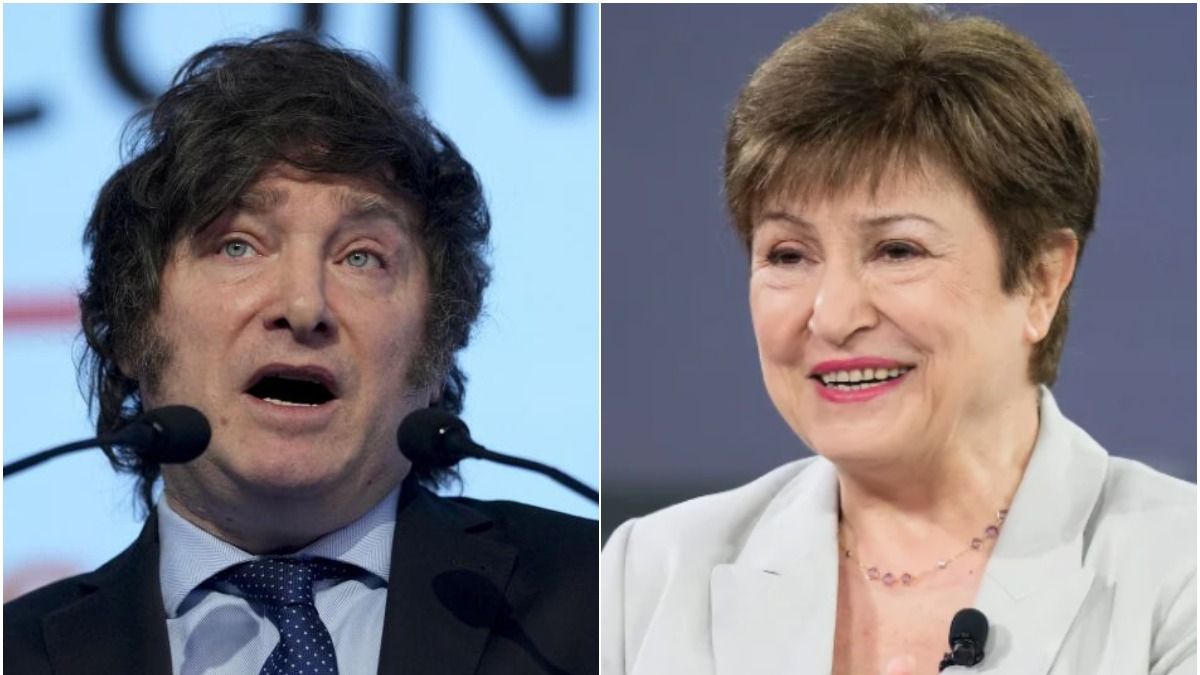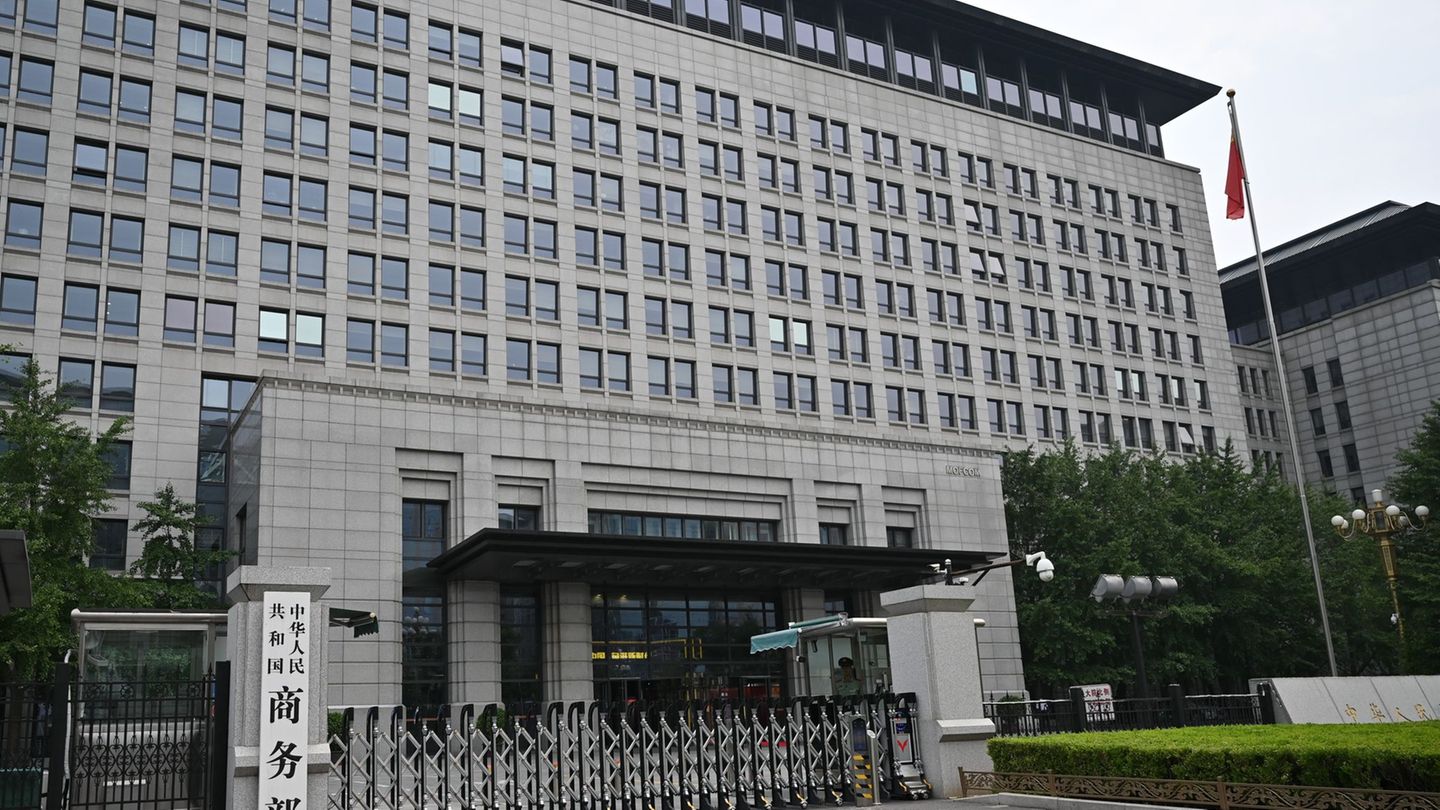And, in fact, that ambition is present in the Budget as well, specifically, in the Article 13 of the Law. That point establishes that authorizes the Chief of the Cabinet of Ministers, after intervention by the Ministry of Economy, to introduce increases in budgetary credits approved and establish their distribution, to the extent that they are financed with increased sources of financing originating in Loans from international financial organizations and bilateral creditsamong others.
Milei’s government needs dollars
Let us remember that, as explained the economist of the Foundation for Development Research (Fide), Pedro Gaite, “the agreement with the International Monetary Fund (IMF) and the review of goals end this year.” Thus, it indicates that the relationship of the current administration with the international organization weighs in the preparation of a budget given that The Government will seek new disbursements next year.
And it is that, as it is stated Debt expert Emilia Val, Master in Economic Sociology and researcher at CONICET, to Scope, The Government “cannot afford to close any funding channels, since the exchange rate balance is quite weak and the Minister of Economy, Luis Caputo, was unable to obtain the dollars that he apparently had promised Milei that he had from investors.”
He also mentions that the country risk is still high and the only chance of borrowing on the markets is to do so at prohibitive rates. He points out that, “given these difficulties in borrowing again, International financial organizations are always an option for governments“because they are the last ones who can finance when the private ones do not do so.”
Thus, Val indicates that “It is expected that he will take advantage of all the agreements and loans that remain pending from Sergio Massa’s economic management. (as happened with the swap) and move forward in obtaining what it can from multilateral banks.” In addition, of course, to sit down to negotiate a new agreement with the IMF.
The weight of the relationship with the IMF in the 2025 Budget
In that sense, Eco Go economist Sebastian Menescaldistates that “The current agreement we have with the Fund expires at the end of this year, Therefore, there are no goals yet for 2025.” The Government launched a Budget and then proposes it to the organization within the framework of a possible negotiation. In this context, it points out that “Argentina seeks to give an image that it will remain aligned with the goals of the current program“. Therefore, try to reflect that predicts continued deceleration of inflation and the activity begins to recompose and grow.
“Nevertheless, The Government did not include an exchange rate correction that the Fund has been demanding for some time“, says Gaite. The 2025 Budget foresees a devaluation equivalent to 1.4% per month, with a wholesale dollar at $1,207 at the end of 2025. Thus, a weak point in that sense is the signal that The cepo and the “crawling peg” will remain in force.
Some contradictions with what the Fund proposes
Consequently, Pablo Bortz, specialist in macroeconomics, international finance and economic growthwarns that “the exchange rate projections are contradictory with what the IMF wants because they would suggest that the restriction will not be lifted in 2025.”
It also provides an inflation of 18.3% per year, which is equivalent to 1.4% per monthin line with the evolution of the official dollar, but very misaligned with market calculations, which place it around 38% and 5% real growth in Gross Domestic Product (GDP) projected for 2025, although that seems difficult with such a low price index that would be more compatible with a recession and It is not clear who the drivers will be, as the industry has been experiencing double-digit year-on-year declines every month.
And on the other hand, Bortz mentions that no reserve accumulation plan is specified. In fact, at that point, he anticipates that outbound tourism is going to be very strong, as a result of the changes in the PAIS Tax, and that this will impact the Central Bank’s (BCRA) dollar collection process. “The Government decided to sacrifice that point. In reality, beyond the fiscal deficit and the inflation target, I don’t see much of what the Fund expects in the 2025 Budget bill,” he says.
Javier Milei President of the Argentine Nation
Javier Milei presented the 2025 Budget last Sunday.
Mariano Fuchila
“The Government thinks that, as long as it complies with the fiscal deficiteverything else will be sorted out and he believes that this will help him negotiate with the Fund while he obtains disbursements from other organizations,” says Bortz. But he doubts that this will be the case in the end, since he points out that, once the negotiations begin, each of the parties will give something. “The Government will emphasize the fiscal issue and the IMF on reserves and exchange rate policy,” he anticipates.
Along the same lines, Gaite points out that “The government is even more extreme and orthodox than the Fund on issues such as Treasury assistance and fiscal deficit, In fact, the goals were almost all met,” but he believes that “he will have to apply an exchange rate jump if he seeks to have funds released,” a decision that, as expected, the Minister of Economy, Luis Caputo, was not going to include in the Budget, not even if it had already been taken, because it will be part of a subsequent negotiation.
In short, as stated the economist Federico Glusteinthe 2025 Budget is undoubtedly crossed by the search for a new agreement with the IMFsince the goals are generally aligned, although, for some voices, and, for example, it does not enable new energy subsidies. However, There are some elements that will be part of a subsequent negotiation.within the framework of which new demands will be raised in the future, as expected by the market.
Source: Ambito




